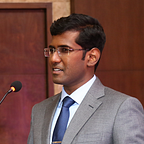What I’ve been reading
Here is a quick summary of the books I read this summer.
Elon Musk by Ashlee Vance
Found this on my Dad’s bookshelf. Elon is an interesting character, he was part of the Paypal mafia and has been in the news for attacking journalists and for his seemingly erratic behavior on Twitter. Recommended.
Things I found interesting
- Like Jeff Bezos, Steve Jobs, Elon Musk is an extremely demanding employer. Not sure if this is a pre requisite for being successful. Perhaps this will change once I read the book on Google’s founding.
- I knew Elon was part of Paypal, but was never sure of the full picture. Elon’s company X.com was merged with the one started by Peter Theil to become Paypal. Elon started off as CEO but was deposed (during his honeymoon!) and Theil took over
- One key trait of Elon is his ability to go all in. He took his earnings from Paypal and pumped them into SpaceX and Tesla. Both flirted with bankruptcy for much of their existence, SpaceX seems on firmer ground now, though Tesla is still in the news.
India: A History by John Keay
I know little about Indian history and understanding more has been a goal since I returned from the UK three years ago. My interest was also stoked by my trips to Delhi, Jaipur, and Udaipur last year. I knew about the Mughals, Rajputs, and British but was not sure where they fit in. Recommended.
Things I found interesting
- General lack of information about civilizations until the Gupta dynasty. The earliest civilisation, the Harrapas left behind very few artifacts. We can only imagine what life under them was like.
- Everytime a great empire would rise, it would win a war, sign a treaty with the conquered who would promptly defy them once they left. In this way they never actually ‘ruled’.
- Not sure if the same is the case with other empires in other parts of the world. When I read Sapiens one key point was that conquering empires would often impose their culture on the conquered. But if the interest is only in acquiring wealth, then this would not have happened.
- Another point that was covered in Sapiens, was about empires. We usually hate empires, they are greedy and impoverish the lands. But, who do they replace? As this book makes clear it’s usually another ‘greedy’ empire. Hence the British replaced the Mughals, who themselves rose to power by replacing another dynasty.
- Every Mughal emperor was deposed by one of his sons who promptly went to war with the rest of his brothers and killed them.
The power of Onlyness by Nilofer Merchant
I heard about this book from a post by Ellen Chisa. The first section of the book introduces the concept of ‘onlyness’. It refers to the unique perspective that only you have. Even the same event is experienced differently by different people and this can be a source of strength.
The rest of the book was about using your onlyness to affect change. It contained a few case studies and frameworks . I did not find this part interesting, just not the right time perhaps.
